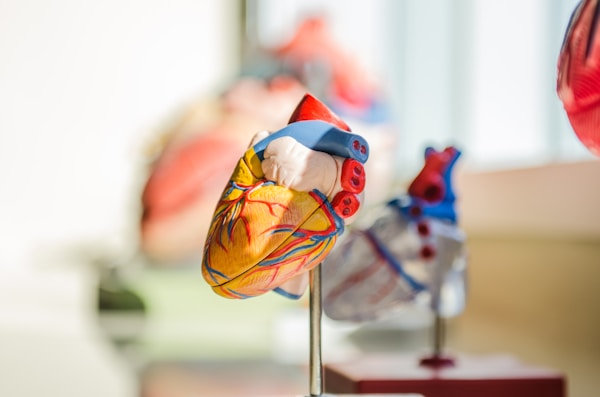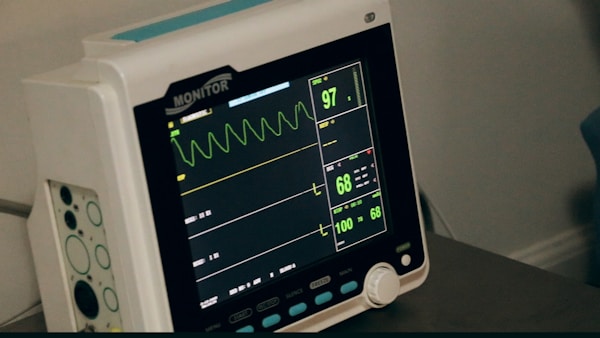Heart disease is a major concern for many people worldwide, and understanding the signs, symptoms, and treatment options available can be lifesaving. In this article, we will discuss important aspects of heart disease, including recognition, prevention, management, and available treatments.
Recognizing the Signs and Symptoms of Heart Disease

Early detection of heart disease is crucial for effective treatment and management. Knowing the signs and symptoms of heart disease can help individuals identify potential problems and seek appropriate medical care. Some common symptoms of heart disease include chest pain or discomfort, shortness of breath, palpitations, lightheadedness, and fatigue. It is important to note that symptoms can differ between men and women, with women more likely to experience symptoms such as nausea, vomiting, and back or jaw pain.
Individuals should also be aware of risk factors that increase their likelihood of developing heart disease. These risk factors include age, family history, smoking, high blood pressure, high cholesterol, obesity, diabetes, and a sedentary lifestyle. By understanding their personal risk factors, individuals can take steps to reduce their risk and improve their overall heart health.
Specific diagnostic tests are available to confirm the presence of heart disease. These tests may include electrocardiograms (ECGs), stress tests, echocardiograms, and angiograms. Depending on where you live, you can search for “Los Angeles cardiology,” for example, to find a cardiologist in your area. Consulting with a professional cardiology specialist is essential for diagnosing and addressing any heart issues.
Preventing Heart Disease Through Lifestyle Changes

Preventing heart disease is an essential part of maintaining overall health and well-being. One of the most effective ways to prevent heart disease is through lifestyle changes. Simple modifications, such as maintaining a healthy diet, engaging in regular physical activity, avoiding tobacco products, and managing stress levels, can significantly decrease an individual’s risk of developing heart disease.
A heart-healthy diet includes a variety of nutrient-rich foods, such as fruits, vegetables, whole grains, lean proteins, and healthy fats. Reducing the intake of saturated fats, trans fats, and added sugars is also important for heart health. Engaging in regular physical activity not only helps maintain a healthy weight but also strengthens the heart and improves circulation. Experts recommend at least 150 minutes of moderate-intensity aerobic exercise per week for overall cardiovascular health.
Appropriate stress management is another crucial component of heart health. Chronic stress can contribute to high blood pressure, increased cholesterol levels, and other risk factors for heart disease. Incorporating stress-reducing activities—such as yoga, meditation, or mindfulness practices—can help support a healthy heart and prevent heart disease.
Managing Heart Disease for a Better Quality of Life
Once a person is diagnosed with heart disease, it is essential to manage their condition to maintain their quality of life and prevent further complications. Management of heart disease primarily involves medication, lifestyle modifications, and regular check-ups with healthcare providers. Medications can help control symptoms and prevent complications like heart attack or stroke, while lifestyle modifications such as diet, exercise, and stress management can further support heart health.
Patients with heart disease should work closely with their cardiologist and other healthcare providers to develop a personalized treatment plan to manage their condition. This may include medications to treat high blood pressure, reduce cholesterol levels, or improve heart function, in addition to lifestyle recommendations to support optimal heart health.
Advanced Treatment Options for Heart Disease

For those with severe heart disease or complications, advanced treatment options may be necessary. Medical procedures, such as angioplasty and stenting, can be used to clear blocked arteries and improve blood flow. Cardiovascular surgeries, including bypass surgery, valve repair or replacement, and heart transplant, may be necessary in more serious cases.
Cardiac rehabilitation is an important part of recovery after a heart event or procedure. This comprehensive program combines education, counseling, and exercise to help individuals regain strength and improve their overall heart health. Participation in cardiac rehabilitation can help reduce the risk of future heart problems and improve overall quality of life.
Advancements in technology and medical research continue to develop new treatment options for heart disease. Innovative procedures, such as transcatheter aortic valve replacement (TAVR), and the development of novel medications offer promising avenues for the future of heart disease treatment.
Overall, understanding the signs, symptoms, and treatment options for heart disease is crucial for individuals and their families. By recognizing the risk factors and taking steps to prevent and manage heart disease, a better quality of life can be achieved for those affected by this serious condition.









